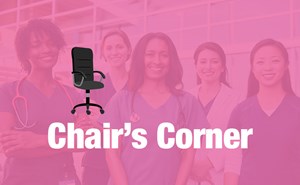
I’m Getting Older, but am I Getting Any Wiser?
Let no one be slow to seek wisdom when he is young nor weary in the search of it when he has grown old. For no age is too early or too late for the health of the soul.
- Plato
I graduated from residency over 20 years ago, but most of the time I still think of myself as one of the “young docs.” Maybe that’s because many of my mentors are still actively practicing (and are still my mentors!), or maybe because emergency medicine still excites and invigorates me, even after all this time. Perhaps it’s just hard to think of oneself as getting older. Still, I’m obviously not a newbie. So, I know I’m getting older, but as the saying goes, am I getting any wiser?
THE SCIENCE OF WISDOM
As I started to look into this, I realized that not even the experts agree on how to define or measure wisdom. For me, the definition that seemed to make the most sense was that of “practical wisdom,” described as “doing the right thing, at the right time, for the right reasons,” an application of knowledge and experience to new life challenges. Integral to this idea is the motivation for doing good. When faced with real-life decisions, how do you integrate multiple perspectives, balance intellect with emotion, or navigate uncertainty with limited information? How do we find solutions that meet our needs as well as society’s needs? A systematic review of the literature done by Meeks and Jeste identified common components in wisdom: general knowledge of life and social decision making, emotional regulation, pro-social behaviors like compassion and empathy, insight or self-reflection, acceptance of different value systems, decisiveness, spirituality, openness to new experiences, and sense of humor.
Understandably, measuring wisdom is not easy. Research has looked at various ways to do this, including self-assessment scales, directed journaling with review by the researchers, content analysis of stream-of-thought essays, presentation of “performance-based” vignettes with discussion, and expert consensus. One interesting study used “Dear Abby” style letters and asked research subjects to offer responses/reactions to the letters. The answers were then analyzed for various aspects of wise thinking.
Psychological research has recently started looking at the biological processes that impact the study of wisdom. Observation of patients with traumatic brain injury and frontotemporal dementia has helped to elucidate some of the areas of the brain believed to be involved in the neurocircuitry of wisdom. Specifically, damage to the frontal lobes, while leaving cognition and motor function intact, has demonstrated that the prefrontal cortex (PFC), as well as the limbic striatum, may be heavily involved. Interestingly, as the brain ages, neural activity seems to shift away from the highly sensory aspect (eg occipital lobes) of younger persons to the more anterior PFC: the area responsible for higher-order processes such as planning, initiation, and judgment. This supports findings by Grossman, who found in a community-based study of persons aged 25 and older, that older adults had improved reasoning in regards to social conflicts and used higher-order reasoning schemas that reflected tolerance of other perspectives, awareness of one’s limitations, and willingness to facilitate compromise.
Additionally, there is a shift in aging that decreases the highly lateral processing (dominant left or right brain activity, depending on the task, in younger persons) to less asymmetry and the use of both sides of the brain. This may help higher-performing older adults compensate for age-related neurocognitive decline. In contrast, Cabeza et al noted that low-performing older adults continued the more lateralized processing they employed in their youth.
Changes in the amygdala, which is central to processing emotions, also occur. When researchers looked at how the brain responds to emotions, it was noted that older subjects did not have the heightened response to negative visual images that younger persons did, but still responded similarly to positive images. It was posited that this leads to greater subjective well-being in older adults, despite the physical decline associated with old age.
Humans differ from most animals in having a long post-reproductive period. Few species survive long after they’ve completed their reproductive years. But with humans, we live decades past that time. The discovery of so-called “grandparent genes,” (Human Siglecs, or sialic acid-binding immunoglobulin-related lectins) seems to support a benefit to older age. The Human Siglecs help regulate the immune system and protect the body during aging. It was theorized that these genes may be relevant in allowing the transfer of wisdom to successive generations. Although older adults are not able to continue having offspring, the transfer of knowledge to inexperienced grandchildren allows them to safely reach reproductive age. In fact, the Grandmother Hypothesis (Lahdenpera et al, 2004) showed that grandparents involved in the raising of grandchildren resulted in increased longevity of the grandchildren, fewer emotional problems and adjustment difficulties, more prosocial behaviors, and increased fertility of the grandchildren! (I will have to remember that with my new granddaughter. J) Research has shown that populations with a higher rate of old-to-young survive for more generations, indicating that at a population level, the presence of older people is beneficial.
GAINING WISDOM
So, biology favors gaining wisdom as we grow older. Popular belief is that wisdom is associated with traumatic experiences, and of course, the longer we live, the more opportunity there is for us to have these types of experiences. In a community study done by Sutin et al, in analyses of interviews in which people described their most stressful events over the last ten years, 75% stated that the event gave them opportunity for wisdom or “a lesson learned.” Certainly, during these recent months, all of us have had time to reflect on the most meaningful aspects of our lives. But, barring negative life experiences, is there a way to pave the road to more wisdom? Here are some suggestions gleaned from the experts:
Try new things. Wisdom is based on experience, so it makes sense that increasing your experiences will help develop wise thinking. Get out of your comfort zone. I have a motto of “do something scary every day.” My husband knows this, and will often remind me to push myself out of my comfort zone. Yes, you will make mistakes, but then correct and reflect on them. That knowledge will benefit you in the future.
Have an open mind. Meet people you wouldn’t normally talk with and try to get a better understanding of their perspective. Cultivate an inquisitive spirit. I have a friend who, when invited to a dinner party, never sits with anyone he knows. He finds people so interesting that he wants to get to know somebody new. Try it, and see what you find out!
Learn something new. Not only has this been shown to help decrease your risk for dementia, but it helps make you wiser! We have already been through a lot of schooling, but our love of knowledge was one of the things that got us here. Go to a museum, read a book, take an art class, learn a language. There’s a myriad of ways that we can expand our horizons with new ideas and interests.
Find wise mentors. I routinely rely on my mentors for help with difficult decisions. While I wish I were as wise as they, I have found that emulating them has helped me improve my skills. Along the same lines, Grossman describes a process he calls “ego-decentering” that helps lead to wiser decisions. In looking at individuals making difficult decisions, whether for a close friend or for oneself, he found that people show a greater ability to reason wisely about other peoples’ problems compared to their own personal problems. For example, when making decisions about their personal problems, they were overly optimistic about results and less likely to consider prior relevant experience outcomes in their decision-making. One way to employ this technique is to view the problem from a third-person perspective, rather than first-person, or imagine that you are a third-person observer rather than a participant. Using these techniques, people were noted to make wiser decisions and increase cooperation.
WHAT I’VE LEARNED
Although I wouldn’t call myself wise, here are a few things that I have learned:
Not everyone thinks the same way I do. I will say that this is probably one of the first “wise” understandings I had, probably sometime in high school. The classic example is the “cup half full” versus “half empty” perspective. Now, I’ll admit, I’m a half-full type of person, so maybe that delayed my realization for a while! As we’ve all taken the Meyers-Briggs sometime in our past, we know that there are different personality types and ways we experience the world and interact with each other. Add to that our different cultural mores, upbringing, life experiences, and it becomes clear that each person views things through a different lens. Once I understood this, it made it much easier to connect with those who held a different viewpoint from mine.
You don’t have to be everyone’s friend. Another early lesson learned, but a tough one I’m still working on. Truthfully, do you really want to be everyone’s friend? I’m reminded of Sally Field upon winning her Oscar for Places in the Heart, “You like me! You really like me!” (Apparently, she never actually said that, but you get what I mean!) Especially as we grow in our careers and responsibilities, don’t confuse “like” with “respect.”
Pay attention. It’s so easy these days to become distracted (with work, devices, family duties, etc). As emergency department physicians, we often feel we can multi-task, and try to do too much at once. I know I’m often guilty of that. One advantage of the current COVID times is the opportunity to look at our priorities and make time for them. Make sure that the time you spend is really focused on that person or activity.
Find your joy. This is my happiest maxim, and one that I find is getting easier for me. Maybe it’s the old age amygdala, but lately I am able to find joy in things both simple and amazing. A joyful life produces positive energy and encourages us to look to the future with high hopes. Find the things that make you feel joyful, and bring them into your life more often. We lived most of our lives with delayed gratification, but the time to experience joy is now.
I hope this little exploration into wisdom has brought you some new insights, and even some challenges. I definitely felt encouraged looking through the literature and understanding that wise people are not born, they are nurtured and grown from the rest of us. Although I do not feel I’ve become that wise older woman, I do feel that there is potential!
References and Further Reading:
- Cabeza R, Anderson ND, Locantore JK, and McIntosh AR. Aging gracefully: compensatory brain activity in high-performing older adults. NeuroImage. 2002;17(3):1394-1402.
- RJ Sternberg and J Gluck, eds. The Cambridge Handbook of Wisdom. Cambridge University Press; March 2019.
- Grossman I. Wisdom in context. Perspect Psychol Sci. 2017;12(2):233-257.
- Wikihow. How to gain wisdom. Accessed July 13, 2020. Learn More
- Jeste DV, Lee EE, Cassidy C, et al. The new science of practical wisdom. Prospect Biol Med. 2019; 62(2):216-236.
- Jeste DV, Lee EE. Emerging empirical science of wisdom: definition, measurement, neurobiology, longevity, and interventions. Harv Rev Psychiatry. 2019;27(3):127-140.
- Lahdenperä M, Lummaa V, Helle S, Tremblay M, Russell AF. Fitness benefits of prolonged post-reproductive lifespan in women. Nature. 2004;428(6979):178-181.
- Sutin AR, Costa PT, Wethington E, Eaton W. Turning points and lessons learned: stressful life events and personality trait development across middle adulthood. Psychol Aging. 2010; 25(3):524-533.
E. Lea Walters
MD, FACEP




